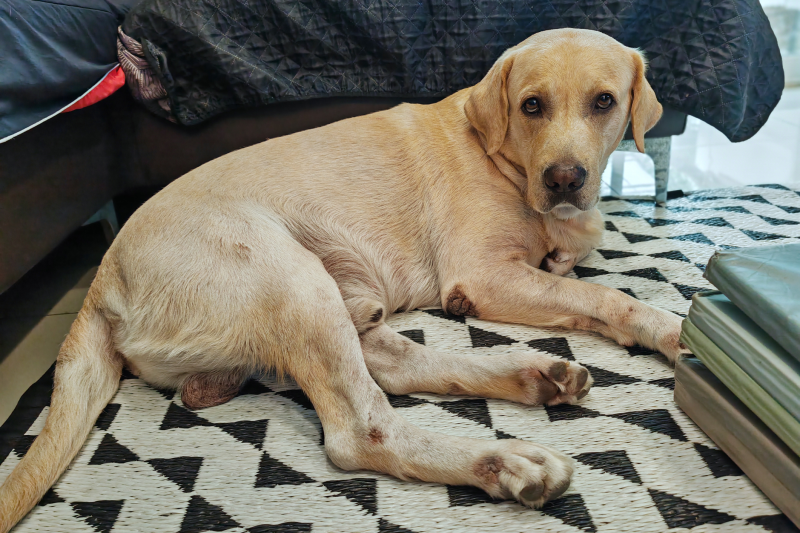
Laughter at Labrador's Effort To Move 'Unbothered Brat' Sibling off His Bed
Like children, dogs seem to be more interested in something that doesn't belong to them—like this Labrador who has recently gone viral on TikTok.
Racking up over 410,000 views in just 24 hours, the video posted by their owner (@mack.morgan0) shows the moment her female dog starts winding up her male Labrador by not only stealing his bed but bone too.
During the July 18 clip, the male dog is notably annoyed and throws a tantrum by groaning, jumping up, then lying down and hitting the bed in a desperate bid to get her off. However, the female dog is unphased.
An extract from the text refers to her as an "unbothered brat," then after almost a minute of begging and pleading, she walks slowly to an identical bed next to it.
@mack.morgan0 #dogs #dogsoftiktok #pup #pups #fyp #fypage #foryoupage #foryou #labsoftiktok
⬠Cute mischief, scheming (loop) - The Penguin
In the comments, the owner compares the speed to a sloth's and tells another user, "[She] didn't even want it, was just proving a point to him."
Another commenter wrote, "She said he ain't even worth it," and their owner responded, "not a second of her time and she moves on her time only."
"I love his little tantrum," said another comment on the clip that has 17,600 likes, at the time of writing.
Do Dogs Share?

While it may seem like dogs don't know how to share, as they often "argue" over items, researchers from the University of Veterinary Medicine, Vienna, Austria, have found that dogs can indeed share. The 2016 study published in journal PLOS One investigated whether dogs share resources, particularly with familiar dogs, and how different experimental methods affect this behavior.
The study involved 15 pet dogs from households with at least two dogs. In an initial study using a bar-pulling method, dogs pulled a rope to deliver food to a familiar dog, showing clear sharing behavior. To further explore this, researchers used a token exchange task, where dogs could touch a token to give food to another dog (familiar, stranger, or none). A control condition had the partner present but unable to access the food.
The results showed that dogs shared more food with familiar dogs than with strangers or in a non-social control setting. However, the token exchange task couldn't rule out the influence of social facilitation—the presence of another dog affecting behavior. This may be due to the increased complexity of the task.
Overall, the study suggests that dogs do share resources, especially with familiar partners, and highlights the need to control for external influences in experimental designs.
Newsweek reached out to @mack.morgan0 for comment. We could not verify the details of the case.
Do you have funny and adorable videos or pictures of your pet you want to share? Send them to life@newsweek.com with some details about your best friend and they could appear in our Pet of the Week lineup.
